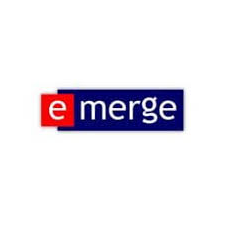When expertise trumps experience

Having education, experience, and expertise in the workplace is important. Most organisations would be in agreement. Education is the foundation for obtaining knowledge on various subjects, while experience is the practical training on those subjects learned in the classroom or lecture hall. Expertise, on the other hand, is one's capability, skill, prowess, gift, calibre, and mastery of a subject or multiple subjects. While the three proficiencies are vital for obtaining work and growing in your career, which one ranks higher? My observation has been that most companies regard experience as the main factor in hiring. It is pitiful that experience and education should be the barrier between potential talent and a good opportunity. While companies largely consider candidates based on ancient conventions, studies show that having experience does not correspond to expertise.
The time spent doing something does not make one more adept or skilled. To be a high-calibre individual, you need more than years of experience in a particular role. It can take an individual a year to learn a new skill, while it may take a few weeks or months for another. This begs the question: why do companies insist on hiring individuals based on specific years of experience instead of measuring their expertise?
I believe that experience persists in what it knows, failing to break through barriers. It can be too rigid. For instance, a company might stipulate, "We need someone with at least five years of experience and a bachelor's degree in a certain field." What if companies prioritised skill over experience? Some individuals can take on new challenges and excel. Experience and education should never hinder one from getting a good job. The business world can be similar to friendships, specifically those relating to women. No offence to my female counterparts, but a clique would not allow an outsider into their circle because she does not fit a certain mould. Usually, that precondition is based on flawed beliefs and assessments of each other. This analogy corresponds to the hiring process, where one can only be considered if they have the mandated experience.
One's ability to adapt to and engage with new information should take precedence. Why can't organisations and hiring managers look at hiring from a holistic perspective rather than a linear, narrow-minded one? A company may reap bountifully by placing greater emphasis on expertise over experience and education. I understand that education is important, and I agree. Experience shows a level of expertise, but it is not necessarily true in every case. Therefore, these requirements could be viewed on a case-by-case basis. Sometimes people lack experience and education because of inaccessibility to funding for studies, resources, exposure, or just an opportunity to prove themselves. The system is quite flawed and needs to be rectified. Focusing on expertise can reveal other critical skills that are in high demand, such as innovation and creative problem-solving. You never know until you try.
Evidence shows that some companies are changing their hiring processes post-pandemic because they realize that they might lose top talent if they stick to their old methods for hiring. Companies need to consider both hard and soft skills. I like to focus on soft skills because those are the skills that make an individual high-calibre. Those are the skills that are learned through hardships, trials, never giving up, rejection, and the like. They cannot be taught in a classroom; they form part of your character and transcend experience. With skills such as leadership, communication (active listening), empathy, and emotional intelligence, one can grow and make a remarkable impact wherever one works. These, among others, are important skills that should be placed above experience and education. Molière put it plainly when he said, "I assure you, an educated fool is more foolish than an uneducated one."
There is a growing trend in the US for companies to hire based on skills rather than experience. These companies are also employing AI to determine skills with impartiality. McKinsey reinforces that hiring more for skills versus industry experience is beneficial by stating several facts: looking beyond educational requirements expands the talent pool; focusing on skills reduces bias in hiring when an objective assessment of skills is made to reduce systemic disadvantages; and organisations can move individuals internally where there are skill matches for particular roles. AI is a useful tool that can assist companies in identifying and sourcing talent objectively.
Moreover, there are other ways to judge a candidate than just looking at their education and work experience. HR is recognising that new methods should be adopted. An article by TTRO's Never Stop Learning identifies the STAR method as one such approach. STAR stands for Skilled Through Alternative Routes. These individuals are those who have acquired skills through other means, such as internships and free online courses. Using the skills-versus-experience or education-first approach in a country like South Africa can help alleviate the high unemployment rate.
The climate continues to change, and post-pandemic people have started and continue to work from home, and many things that we thought were impossible have become possibilities. It has been a rule that qualifications and experience are mandatory for getting work. How can we consider what skills and competencies an individual holds as a better approach and standard?
I will leave you with another quote by Dave Kerpen, which states that "Change is good. It is also often hard. But to succeed in business, you must run toward it".
I am a UX consultant, a coach, and an artist. I have a solid background in visual design and have been growing in my UX career since 2020. I am a high-calibre individual with a zeal for learning. I hold a BA Arts with Honors and a plethora of certificates. What sets me apart is my ability to empathise with and understand people, my high emotional intelligence, and my self-awareness. These skills, among others, aid me in achieving excellence in my work. As a creative, I like to express myself on paper and on screen, and I am currently developing my writing skills.
BusinessArticles from Lebo Mollo
View blog
Multi-disciplinarian, generalist, all-rounder, There are many terms for it. A multi-disciplinarian i ...
You may be interested in these jobs
-
Medical Manager, Oncohematology
Found in: Talent ZA C2 - 5 days ago
AbbVie Midrand, South Africa Full timeJob Description · Medical Manager, Oncohematology · Summary: · Represent the affiliate's medical/scientific voice of expertise for assigned product(s) and relevant therapeutic areas. Provide medical / scientific expert advice / guidance to key customers for assigned products and ...
-

Senior Researcher
Found in: beBee S2 ZA - 3 days ago
PLAYRIX Eastern Cape - Free State - Gauteng - KwaZulu-Natal - Limpopo - Mpumalanga - North West - Northern Cape - Western Cape - International, South Africa Fixed-term contractPlayrix is the largest game development company in Europe. We rank among the top 3 most successful mobile publishers in the world, and our projects (Homescapes, Gardenscapes, Fishdom, and others) are played by 100 million people every month. · Our mission is to bring joy to milli ...
-

NEW WORK IN: Senior Front-end Developer
Found in: Executive Placements ZA C2 - 4 days ago
E-Merge Johannesburg, South AfricaNEW WORK IN at a top Fintech with core focus in Data Science and a Global Portfolio to play with. The current need is for a Senior React Developer with a strong foundation in TypeScript and a knack for turning complex technical challenges into well-designed solutions You will joi ...

Comments